#Ludwig Bauer
Explore tagged Tumblr posts
Text
Finally got around to Updating the voice claims of my Ocs AUGHHH AUGHHH
#Fins & Flintlocks#Delmor Boucher#Kabiite Mwebesa#Ludwig Bauer#Jean-Samuel Dubois#Idris Bashar#art#digital art#artwork#original character#ocs#original characters
11 notes
·
View notes
Text




Woods of Birnam performance in Düsseldorf.
[Pictures are not mine, taken from the Instagram account @zakk_duesseldorf (the venue)!]
#woods of birnam#christian friedel#philip makolies#christian grochau#uwe pasora#ludwig bauer#tour#germany#hamlet#macbeth#dorian grey#william shakespeare#concert#live#performance#düsseldorf
9 notes
·
View notes
Text
Ludwig Bauer: ŽIVOT JE ČITAONICA
Možda bi i ovdje bilo prikladno pozvati se na to kako me djed, majčin otac, navukao na čitanje. Nisam još bio dorastao za školu kada mi je djed iz večeri u večer počeo čitati Priče iz davnine. Možda je među njegovim razlozima bila i želja da me nauči dobrom hrvatskom jezik i oduči od tada tako nepoželjnog, pa čak i opasnog švabetanja. Ipak, na prvome mjestu bio je poriv da mi otkrije radost…
0 notes
Text



Hinter den Kulissen von "Tatort: Solange du atmest"
#tatort bremen#tatort aus dem blick#linda selb#luise wolfram#liv moormann#jasna fritzi bauer#return of the brille#die quelle ist ein post vom kameramann martin ludwig der unter anderem aufnahmen einer nächtlichen stadt gepostet hat#wir (nachtszenen im bratort-genießerinnen) sind so back#tatort solange du atmest
7 notes
·
View notes
Text
Very happy to see that Netflix has not only purchased the license for Starz' cancelled show "Heels" but they also have given the show an option for a possible 3rd season!!! 😀 Starz actually cancelled this show and others because they legally split from the show's production company Lionsgate. The show ended on a cliffhanger too as they thought they were going to make season 3. It's all going to depend on Stephen and Alexander's schedules too as they are both attached to new shows, and of course the ratings. This will be on Netflix worldwide too and I know a lot of wrestling fans didn't have Starz so they weren't able to watch when this aired, so now they can. I loved this show as it's about a fictional wrestling family the Spades, and their small town Georgia wrestling company that the sons Jack & Ace are hoping to expand and grow in honor of their late father Tom, but they all have a complicated past. Totally rec it for fans of "The Iron Claw" too as this show had a lot in common with the Von Erichs, but also other wrestling families like the Harts, Rhodes, etc. And I had two great ships on here too with valet turned female wrestler Crystal Tyler and loveable sweetheart Texas wrestler Bobby Pin, as well as Jack and his wife Stacy, and a great supporting cast of other wrestlers, promoters, and those that worked for the league. It also was a bit like "Friday Night Lights" mixed with "Glow" too, and made by Mike O'Malley from "Glee" and other shows. So again hoping this means we'll get season 3 after all and Netflix will announce the release date for the first 2 seasons soon. Now if Netflix will finally change their minds and film the final season of "Glow".
#heelsstarz#jack spade#ace space#crystal tyler#bobby pin#stephen amell#alexander ludwig#mike o'malley#kelli berglund#trey tucker#alison luff#mary mccormack#chris bauer#allen maldonado#david james elliot#wrestling#glow netflix#the iron claw
7 notes
·
View notes
Text










W A T C H I N G
This show makes sad for the never-weres in life.
#HEELS (2021-2023)#STEPHEN AMELL#ALEXANDER LUDWIG#Alison Luff#Mary McCormack#Kelli Berglund#Allen Maldonado#James Harrison#Roxton Garcia#Chris Bauer#Robby Ramos#Trey Tucker#WRESTLING#DRAMA#PROFESSIONAL WRESTLING#WWE#TNA Wrestling#INDIE WRESTLING#WCW#WATCHING#this
0 notes
Text
"Richtigstellung!" von Michael Ballweg, Ralf Ludwig - Rezension
Erinnern Sie sich noch? Wir Menschen sind ja bekanntlich ziemlich vergesslich. Auch wenn wir alle nicht Olaf Scholz heißen und einen auf Cum und ex machen. Drum noch einmal, um die Erinnerung(en) wachzurufen: «Die drei Jahre Corona-Zeit waren düster und beängstigend. Nicht nur weil man uns seitens der Regierung und ihr als servile Komplizen gedient habende Medien – die auch noch Staatsknete…

View On WordPress
#Hermann Ploppa#Karlspreis#Klaus-Dieter Rückauer#Mathias Bröckers ´#Michael Ballweg#Peter Fitzek#Querdenken 711#Rainer Mausfeld#Ralf Ludwig#Rudolph Bauer#Tiger Press#wdr
0 notes
Text
𝐄𝐥𝐢𝐬𝐚𝐛𝐞𝐭𝐡 𝐢𝐧 𝐖𝐢𝐞𝐧, 𝟐𝟎𝟎𝟒 (𝐰𝐚𝐭𝐞𝐫𝐦𝐚𝐫𝐤 𝐫𝐞𝐦𝐨𝐯𝐞𝐝)
Maya Hakvoort (Sissi), Steven Seale (Der Tod), André Bauer (Franz Joseph), Else Ludwig (Sophie), Jesper Tydén (Rudolf)
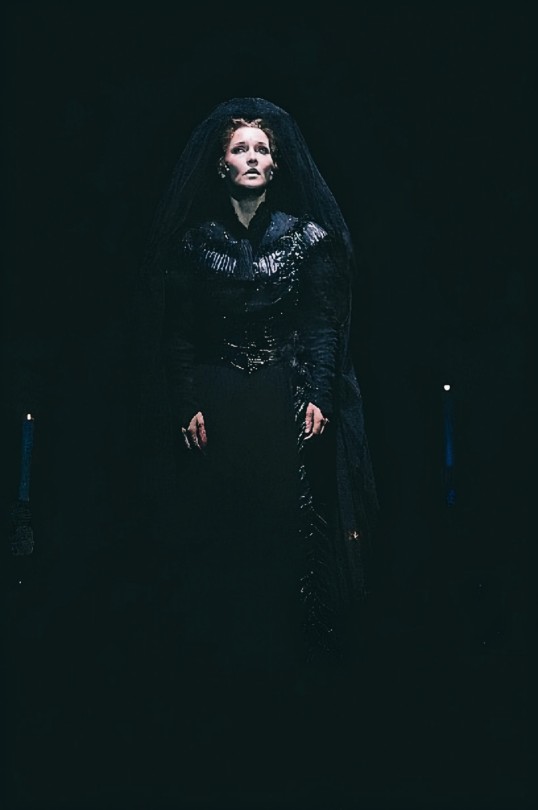





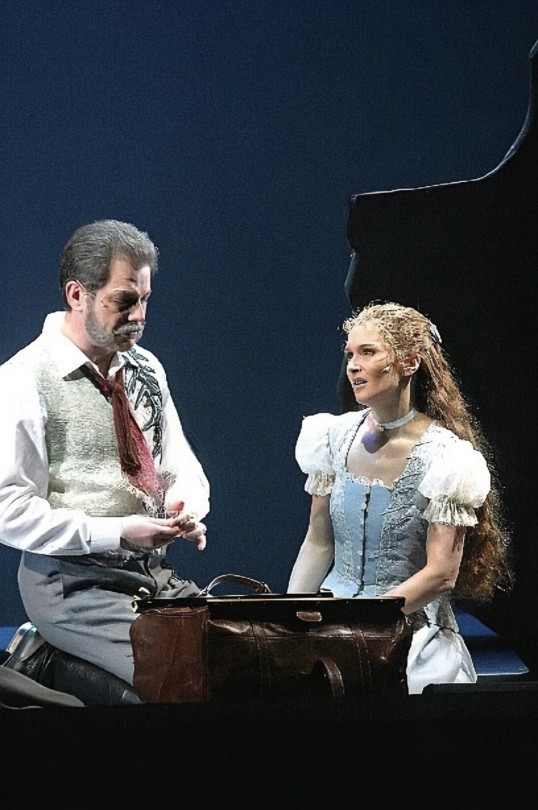
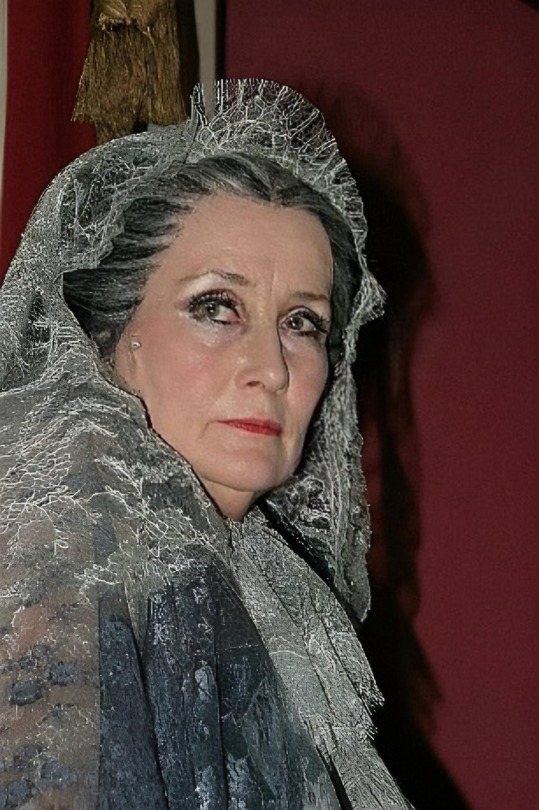
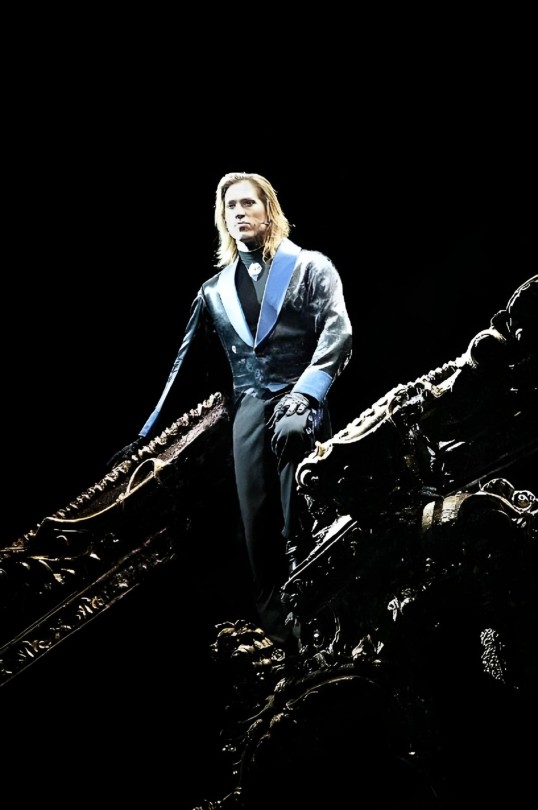
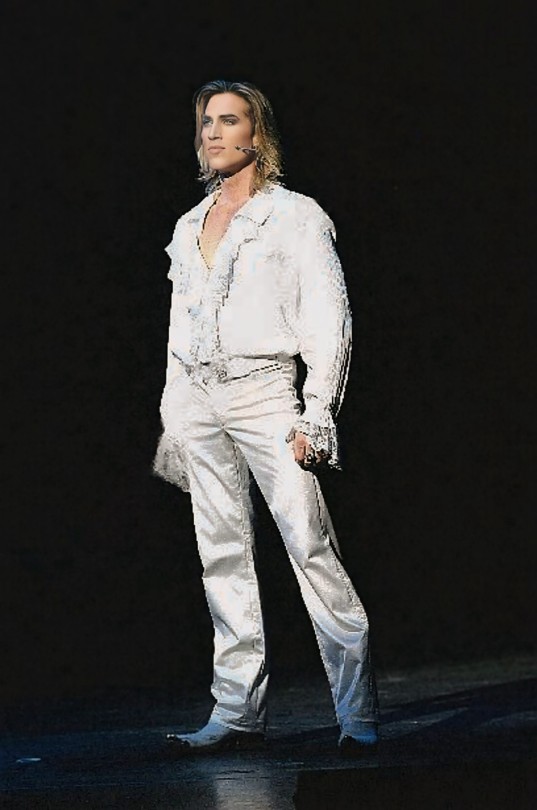
#elisabeth das musical#musical theatre#european musicals#der tod#todolf#maya hakvoort#kaiserin elisabeth
53 notes
·
View notes
Text
Les Misérables 1991
After the semi-failure of the very first show in 1980
Les Mis should have logically fallen into oblivion … Without the miraculous intervention of Cameron Mackintosh !!

While he had just inaugurated Cats on Broadway, the concept album of the show was sent to him by the director Peter Farago, who having seen the stage adaptation of Robert Hossein and and wanted to create an English adaptation
Mackintosh, initially reluctant eventually accepted the challenge
It took him two years of work in collaboration with Herbert Kretzmer, Siobhan Bracke and James Fenton
The first adaptation of a French musical to finally be created in London in October 1985 at the Barbican Centre before moving to the West End :
youtube
The HUGE success will lead to the production of a second official French version ( we can even consider it as a remake)
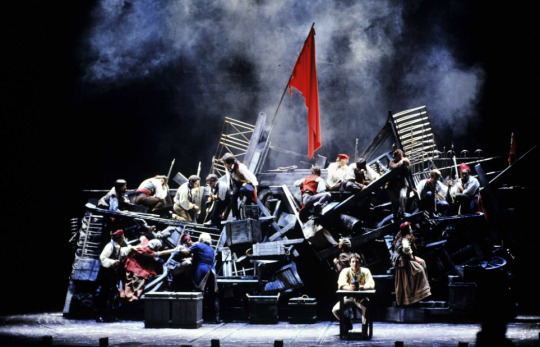
Because it would be stupid to change a winning team
Cameron Mackintosh will take the reins of the project ( with behind him the shadow of Alain Boublil who will have to RETRANSLATE Kretzmer's texts which are translations of his own texts )
it is he who will stage this new version closer to the English adaptation than to the original show
The show will be performed in Montreal at the Théâtre Saint-Denis then in Paris at the Théâtre Mogador

1991 full album :


FRENCH DISTRIBUTION :
Robert Marien : Jean Valjean
Patrick Rocca : Javert
Louise Pitre : Fantine
Laurent Gendron : Mr Thénardier
Marie-France Roussel : Mrs Thénardier
Lynda Zaoui / Anne-Laure Grondin / Nora Kati / Aurélie Lebarbé / Marjorie Theillaumas / Karine Debec / Audrey Boitel : alternately little Cosette and little Eponine
Marie Zamora : Cosette
Stéphanie Martin : Éponine
Ludwig Briand / Cyrille Vannier / Alexis Tomassian : Gavroche
Jérôme Pradon : Marius
Julien Combey : Enjolras
Renaud Marx : Grantaire
Vincent Vittoz : Combeferre
Pierre-Yves Duchesne : Courfeyrac
Juan Pablo Armitano : Feuilly

CANADIAN DISTRIBUTION :
Robert Marien : Jean Valjean
Peter Zinko : Javert
Louise Pitre : Fantine
Andre Therrien : Mr Thénardier
Mireille Thibeault : Mrs Thénardier
Clotilde Aras / Adrienne Nye / Lily Russell / Aurelie Lebarbe / Marjorie Theillaumas / Anne-Laure Grondin : alternately little Cosette and little Eponine
Laur Fugère : Cosette
Stéphanie Martin : Éponine
Andrew Bauer-Gâdor / Gabriel Kakon : Gavroche
Frayne McCarthy : Marius
Francois Godin : Enjolras
Daniel Jean : Grantaire
Sébastien Dhavernas : Courfeyrac
Alexandre Beaulieu : Joly
Unlike the original show which had a lot of archive photos but few videos , here I was able to find more interesting materials :
The Full Live Recording of the Show :
youtube
youtube
youtube
youtube
youtube
youtube
youtube
Unfortunately ... the show is a resounding failure
Les Mis were snubbed for two reasons :
1 - France and musicals is an incredibly recent encounter !!
The public was not interested in this kind of entertainment, which was considered pedantic and unnecessarily expensive , it will be necessary to wait for "Notre Dame de Paris"
( ironically another musical based on a novel by Victor Hugo)
In 1999, for this kind of show to be adopted and appreciated by the public

2 - Fans of the first albums and shows felt betrayed
You have to understand that it is not easy to accept as a long-time fan that a work is cut or modified, while an Englishman allows himself to transform the songs and the scenography by declaring it superior ?!
( not to mention the Franco-English friend-enemy relationship which goes back a long way)
Hardcore fans took this as an affront and boycotted the show apparently, Cameron Mackintosh was so upset and disappointed by the situation that he declared France to be : "a musical graveyard" which only added to the public's bitterness
ANECDOTES :
I had already pointed out that in the 1980 version, Gavroche's actors often lent their voices to the world of dubbing coincidence ?
This is still the case here
youtube
The iconic voices of Alexis Tomassian
...
youtube
Ludwig Briand became a famous child actor playing the role of Mimi Siku in the CULT French comedy film : " Un indien dans la ville "
...
Francois Godin ( Canadian Enjolras ) is a renowned Quebec voice actor !!

By the time I start looking at the 2024 version
I invite you to visit my Masterlist ( with my other posts on les misérables + other french musicals :)
#les misérables#les mis#les miz#inspector javert#jean valjean#musical theater#gavroche#marius pontmercy#cosette#fantine les mis#eponine#victor hugo#one day more#do you hear the people sing#i dreamed a dream#notre dame de paris#cameron mackintosh#lea salonga#french musical#comédie musicale#enjolras#thenardier#the miz#les miserables#the miserables#paris france#doublage#french dub#musical#broadway musicals
6 notes
·
View notes
Text
youtube
The full trailer for season 2 of "Heels" is finally out and it looks great!!! :D Jack's dealing with his wife having left and estranged relationship with his brother Ace, Ace is struggling too, Crystal is now an actual wrestler and the DWL are actually adding more female wrestlers, Bobby seems to be now a ref and one of the announcers as well as it exploring more of his and Crystal's relationship, Rooster has a new wrestling persona, there's new cast additions like Emmy Raver Lampman from "Umbrella Academy", and looks like CM Punk is a series regular now too as Ricky. Excited to watch and it's back July 28th.
#heelsstarz#jack spade#ace spade#staci spade#crystal tyler#bobby pin#willie day#rooster robbins#wild bill hancock#ricky rabies#stephen amell#alexander ludwig#alison luff#kelli berglund#mary mccormack#trey tucker#allen maldonado#chris bauer#cm punk#mike o'malley#wrestling#emmy raver lampman
11 notes
·
View notes
Text
Mads Mikkelsen im Interview: „Kein Mensch hat damals geküsst.“

Auszüge vom Kurier-Interview, 7. August 2024, von Alexandra Seibel, picture by Tony Lundström
Der charismatische Däne Mads Mikkelsen besticht in dem Western-Drama „King’s Land“ (OT: "The Promised Land") als Ex-Soldat und Bauer und sagt einem bösartigen Adeligen den Kampf an – derzeit im Kino.
„Mads-Mikkelsen-Filme ziehen immer“, wissen Verleiher, wenn sie einen Film mit Mads Mikkelsen ins Kino bringen. Egal, in welcher Rolle, der charismatische Däne berauscht sein Publikum global. Oft schweigsam, immer ausdrucksstark, pendelt er leichtfüßig zwischen Hollywood und europäischem Arthouse-Kino. Kein Wunder, der Mann hat eine solide Tanzausbildung hinter sich; acht Jahre lang arbeitete er als Musical-Tänzer. (..)
Der Sexiest Man Alive, mittlerweile 58, hat längst bewiesen, dass er alles kann: zwischen Fantasy-Star und Charakterrolle oder Liebhaber im historischen Kostüm ("Die Königin und ihr Leibarzt").
Derzeit findet man Mikkelsens melancholisches Gesicht in dem dänischen Western-Drama "King's Land" im Kino. Dort spielt er den Ex-Soldaten und Captain Ludwig von Kahlen.
Mikkelsen erinnert an sich an eine ähnliche Rolle, die er bereits gespielt hat: Michael Kohlhaas: zwei Männer kämpfen eigensinnig um ihr Recht. Eigensinn zähle auch zu seinen herausstechenden Eigenschaften, gibt Mikkelsen zu, im direkten Gespräch keineswegs einsilbig, sondern vielmehr höchst auskunftsfreudig. Es sei seine Stärke, manchmal auch eine Schwäche. Sich selbst bezeichnet Mikkelsen als "History Freak". Die Geschichte Dänemarks kennt er in- und auswendig. Wenn es um historische Details geht, kann er kleinlich werden. Dass es zwischen dem kämpferischen Captain und der verliebten Adelsverlobten einen romantischen Kuss geben muss, sieht er zwar ein: "Ich verstehe, dass wir etwas im Film brauchen, womit sich das zeitgenössische Publikum identifizieren kann." Gleichzeitig kam er nicht umhin, den Regisseur von King's Land aufzuklären: "Bis in die 1880-er Jahre hat damals kein Mensch geküsst. Der Kuss hat nicht existiert. Die Japaner haben sich erst nach dem Zweiten Weltkrieg zu küssen begonnen, weil es ihnen bis dahin davor grauste. Der Kuss ist eine romantische Erfindung, die erst mit der Lyrik und dem Roman aufkam."
In King's Land spricht Mikkelsen zwischendurch auch astreines Deutsch, eine Sprache, die er zwar nur rudimentär beherrscht, in der er sich aber sehr wohl fühlt: "Die deutsche Sprache hat etwas, das mich sehr ans Dänische erinnert. Vielleicht ist es die Melodie. Im Deutschen fühle ich mich zuhause".
Angelt sich Mads Mikkelsen mit "King's Land" endlich den verdienten Oscar? Im Trailer sieht es stark danach aus. Es ist kaum zu glauben, aber Mads Mikkelsen kann bisher noch keinen Academy Award vorweisen – noch nicht mal eine Nominierung hat der dänische Schauspielstar bisher erhalten. Dabei liefert Mikkelsen seit Jahren, wenn nicht sogar seit Jahrzehnten, kontinuierlich Schauspielleistungen auf höchstem Niveau ab und stellt das Highlight der meisten Filme und Serien dar, in denen er zu sehen ist. Man denke hier an "James Bond: Casino Royale", das dänische Alkoholdrama "Der Rausch" und nicht zu vergessen seine brillante Serienversion von Anthony Hopkins' Dr. Hannibal Lecter in "Hannibal".
Inhalt: Dänemark im 18. Jahrhundert: Ein Soldat namens Ludvig Kahlen leistet dem Befehl seines Königs Folge und will die wilde Heide von Jütland bezwingen – ein finsteres Niemandsland, in dem neben brutalen Straßenräubern und gefräßigen Wölfen der unbarmherzigste aller Feinde regiert: Mutter Natur.
Die Europäische Filmakademie hat Mads Mikkelsen zum besten Schauspieler des Jahres 2023 gekürt. Diese prestigeträchtige Auszeichnung erhielt er für seine Hauptrolle im Film „Das gelobte Land/King's Land“ („Bastarden“), einem historischen Epos über die Eroberung Jütlands. Aber was ist das Phänomen dieses charismatischen Dänen (keine weichen Züge im Gesicht – nur scharfe Kanten), der zwei Stunden lang über Kartoffeln weinen kann, die in der wilden Einöde nicht wachsen wollen, und das Publikum trotzdem gefesselt ist? Nun, die Formel für seinen Erfolg liegt in der Kombination von mindestens drei Zutaten.... read more
5 notes
·
View notes
Text
youtube
Im tiefsten Herzen hat sich da
Ein Grab mir aufgethan,
Und die gestorb'ne Jugend sah
Aus deinem Aug' mich lebend an.
-Ludwig Bauer
9 notes
·
View notes
Text



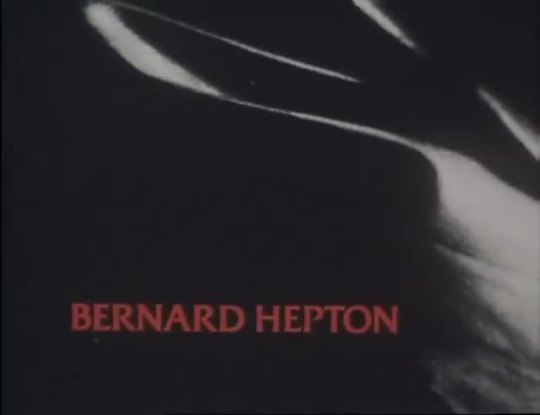






Kessler - BBC One - November 13, 1981 - December 18, 1981
Drama (6 Episodes)
Running Time: 60 minutes
Stars:
Clifford Rose as Ludwig Kessler
Alan Dobie as Richard Bauer
Nitza Saul as Mical Rak
Alison Glennie as Ingrid Dorf
Nicholas Young as Franz Hoss
Ralph Michael as Colonel Hans Ruckert
Bernard Hepton as Albert Foiret
Angela Richards as Monique Durnford
Juliet Hammond-Hill as Natalie Chantrens
Guy Rolfe as Don Julian Yqueras
Oscar Quitak as Josef Mengele
Jerome Willis as Hugo van Eyck
John Moreno as Jose Garriga
Robert Morris as Karl Leider
Jeremy Wilkin as Gidney
Harold Innocent as Deakin
Royston Tickner as Maurer
John Dearth as Graun
Ishia Bennison as Ruth Liberman
Robert Eddison as Heinrich Himmler
Gareth Milne as Muller
#Kessler#TV#BBC One#Drama#1981#1980's#Clifford Rose#Alan Dobie#Nitza Saul#Alison Glennie#Bernard Hepton#Nicholas Young
2 notes
·
View notes
Text
A “Liga dos Homens Justos” (da qual Karl Marx participou) teve influência da Maçonaria; Rothschilds; Palestina; Marx Satanista; Moses Hess Maçom; Albert Einstein; Carta secreta de Levy Baruch e o Plano dos Banqueiros; Bakunin; Comunista Flourence: “Nosso inimigo é Deus. O ódio a Deus é o princípio da sabedoria” (“Filosofia do Comunismo”, Charles Boyer, Fordham University Press, N. York, 1952).
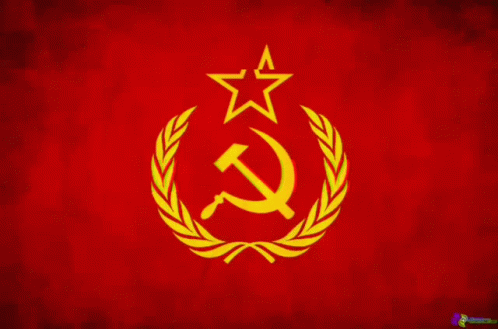
League Of Just Men (globalsecurity.org)
But as Paris remained the decisive battleground, the League was at that time actually not much more than the German branch of the French secret societies.
[…]
The League of Just Men participated in the Blanquist uprising of May 1839 in Paris. prominent members of the League of the Just: the type-setter Karl Schapper, the watchmaker Joseph Moll and others, connected with the Blanquist secret Société des Saisons which organised the Paris uprising of May 12, 1839. Schapper and Moll took part in the uprising, were prosecuted by the French authorities and compelled to leave for England, where they headed local branches of the League. Engels made their acquaintance in the spring of 1843 in London, as he wrote later in his article "On the History of the Communist League".
The League of Just Men moved to London where they founded a front group, the Educational Society for German Working-men, in 1840. While Weitling moved to Switzerland, Bauer and Schapper escaped to London. It became an international organization, which Karl Marx, Friedrich Engels and Johann Eccarius later joined.
The emigrant workers of other nationalities also participated in the League's activities. The internationalisation of the League and the evolution of its members' views under the influence of the ideas of Marx and Engels led to its reorganisation into the Communist League in 1847.
In their infamous 1976 book None Dare Call It Conspiracy, Gary Allen and Larry Abraham claim that Karl Marx was approached by the Illuminati - calling themselves The League Of Just Men (Bund der Gerechten) - who commissioned him to write his Communist Manifesto. The League of Just Men was said to be simply an extension of the Illuminati, which was forced to go deep underground after it was exposed by a raid in 1786 conducted by the Bavarian authorities.
Criador da Liga dos Homens justos (Venedey) era Maçom
Jacob Venedey - Wikipedia
Venedey was admitted to the Masonic Lodge of St Jean de Jerusalem in Nancy in 1833. In 1837 he delivered the eulogy at the grave of his Masonic brother Ludwig Börne in Paris.
O Pai de Karl Marx era Maçom
The Politics of Sociability: Freemasonry and German Civil Society, 1840-1918 - Stefan-Ludwig Hoffmann - Michigan Press (página 313)
Between 1806 and 1813 the Grand Orient de France also founded branch or daughter lodges in the German-speaking region that accepted Jewish members. These included the "l'Etoile anséatique" lodge founded in 1812—13 in Osnabrück, of which Karl Marx's father Heinrich was a member
Bloodlines_ Introduction.doc (cia.gov)
The book is an excellent synopsis of what Satan had planned in 1952 and has carried out since to a large degree. The Rothschilds (and other top Satanic families in a lesser way) financed a jewish Mason and devote Satanist named Karl Marx to write his Das Kapital . The Satanists controlling key Masonic groups (along with some other groups they controlled) got Communism started. The original idea came from Satan, and was given at a Feast of the Beast in meticulous detail to those highest in the Satanic Hierarchy . Albert Pike, and Guiseppe Mazzini were two men in strategic positions of control that were let in on the plans.
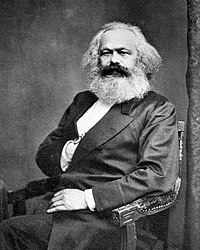

Marx com a mão oculta
Historians Confirm Karl Marx Was Employed By The Rothschilds (thepeoplesvoice.tv)
During the Napoleonic War of the Sixth Coalition, [Marx’s father] Hirschel Mordechai became a Freemason in 1813, joining their Loge L’Ètoile anséatique (The Hanseatic Star) in Osnabrück. After the war, he feigned conversion to Lutheranism as a means to better infiltrate Prussian society. He pretended to be an “assimilated” bourgeois Enlightenment liberal, interested in “free thought” and was wealthy, owning some Moselle vineyards.
One of Marx’s grandparents was Nanette Salomon Barent-Cohen, who belonged to a wealthy Amsterdam family. Her cousin had married Nathan Mayer Rothschild and bore Lionel Nathan Rothschild, “Baron” and Member of Parliament for the City of London.
[…]
Critics have suggested that Marx’s mission was to co opt the nascent socialist movement. Before Marx ever wrote a word, following the industrial revolution, the socialist movement already existed in Germany, France, Britain and elsewhere. Marxists have tried to monopolize socialism and insist that unless you follow Marx’s theories, you cannot be a socialist. This is a clear fraud and usurpation.
A major question in this regard, is “who was behind Marx?” The book Der preußische Regierungsagent Karl Marx by Wolfgang Waldner, suggests that initially Marx worked as a police spy for the Prussian regime.
Waldner mentions the fact that Marx married Jenny von Westphalen in 1843. She came from a wealthy Prussian family. Her brother was Ferdinand von Westphalen, who was Prussian Minister of the Interior from 1850-1858. Ferdinand, Marx’s brother-in-law, was regarded as “reactionary”, who ran a vast spy network which kept tabs on dissidents…
Marx moved to London in 1849…While Marx was authoring Das Kapital in the British Museum reading room, his famous cousin Lionel de Rothschild, conveniently, was MP for the City of London (1847-1868 & 1869-1874).
The Rothschilds (Marx’s third cousin by blood) and other finance syndicates were very prominent in promoting “Jewish emancipation” and Masonic, liberal and Protestant ideas which took hold of society at the start of the 19th century….
The idea of Marx as a Rothschild shill…was raised as a concern by his contemporary rival in the First International, Mikhail Bakunin in 1869, who was not even aware of the fact that Marx and Rothschild were cousins. Bakunin wrote presciently:
“This world is now, at least for the most part, at the disposal of Marx on the one hand, and of Rothschild on the other. This may seem strange. What can there be in common between socialism and a leading bank? The point is that authoritarian socialism, Marxist communism, demands a strong centralisation of the state. And where there is centralization of the state, there must necessarily be a central bank, and where such a bank exists, speculating with the Labour of the people, will be found. “
—Mikhail Bakunin, Profession de foi d’un démocrate socialiste russe précédé d’une étude sur les juifs allemands, 1869.
Henry Makow - Illuminati I - O Culto Que Sequestrou o Mundo - Portugues | PDF | Judeus | Maçonaria (scribd.com)
Uma expressão extrema é encontrada em uma famosa carta de Levy Baruch de Karl Marx citado em "Revisão de Paris", 01 de junho de 1928. Ele também mostra como o socialismo e o comunismo eram apenas dispositivos para usurpar o poder e propriedade. 21 "O povo judeu em seu conjunto será o seu próprio Messias. Seu reinado sobre o Universo será obtido através da unificação das raças humanas e através da eliminação das fronteiras. A República Universal venham a ser constituídos em que os Filhos de Israel se tornará o direcionando elemento. Sabemos como dominar as massas. Os governos de todas as nações serão gradualmente cair, através da vitória do proletariado, nas mãos de Judá. Toda a propriedade privada será a posse dos príncipes de Israel, eles próprios a riqueza de todas as terras. Assim se realizará a promessa do Talmud que quando o tempo do Messias vem os judeus se mantenha sob suas chaves a propriedade de todos os povos do mundo.
Moses Hess, guru de Marx, era Maçom
Who Was Moses Hess? Originally Published January 15-16, 2021. - Beth Shalom (bethshalompgh.org)
In 1863 Hess served briefly as delegate from Cologne for the newly founded Allgemeiner Deutscher Arbeiterverein (a political party), in Leipzig, before returning to Paris where he contributed studious works to the Archives Israélites de France. He also contributed as a Freemason to Le Monde Maçonnique, a broad history of Freemasonry.
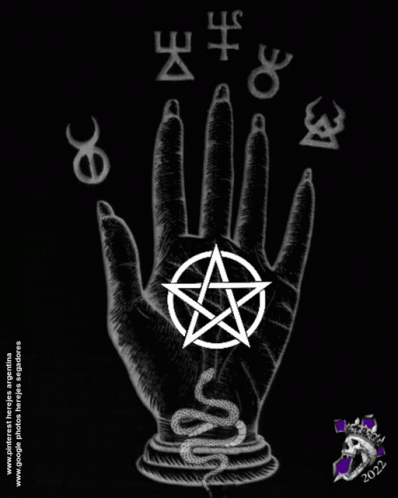
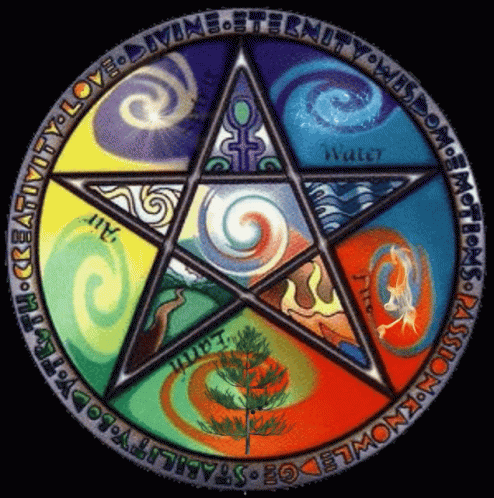
Page:EB1911 - Volume 02.djvu/875 - Wikisource, the free online library
Flourens declares “Our enemy is God. Hatred of God is the beginning of wisdom.
Karl Marx, preferido dos ateus e revolucionários, era satanista confesso (Parte 2) - Artigo Gospel Colunas (gospelmais.com.br)
A afirmação é o autor do livro “Era Karl Marx Um Satanista?”. Essencial afirmar, enfaticamente, que Marx e seus colegas, enquanto anti-Deus, não eram ateus, como os marxistas atuais descrevem a si próprios. Isto é, enquanto denunciavam e ultrajavam abertamente a Deus, odiavam um Deus em quem acreditavam. Sua existência não é posta em dúvida; Sua supremacia, sim.
“Quando a revolução comunista irrompeu em Paris em 1871, o Camarada Flourence declarou: ‘Nosso inimigo é Deus. O ódio a Deus é o princípio da sabedoria’” (“Filosofia do Comunismo”, Charles Boyer, Fordham University Press, N. York, 1952).
Marx elogiava muito os “camaradas” que proclamavam abertamente este propósito.
“Com desdém lançarei meu desafio Bem na face do mundo, E verei o colapso desse pigmeu gigante, cuja queda não extinguirá meu ardor. Então vagarei semelhante a um deus, vitorioso, pelas ruínas do mundo, e, dando às minhas palavras uma força dinâmica, sentir-me-ei igual ao Criador.” (Marx antes do Marxismo, tradução de D. McLellan, MacMillan)
Marx adotou o satanismo após uma luta interior. Os poemas foram terminados em um período de grave enfermidade, o resultado dessa tempestade em seu coração. Nessa época ele escreve sobre seu “desgosto em ter de fazer um ídolo de uma teoria que detesta. Ele está doente”. (idem)
Maldição familiar de Karl Marx
O motivo dominante da conversão de Marx ao comunismo aparece claramente em uma carta de seu amigo George Jung para Ruge. Não é a emancipação do proletariado, nem o estabelecimento de uma melhor ordem social. Jung escreve: “Se Marx, Bruno Bauer e Feuerbach se unissem para fundar uma revisão político-teológica, Deus faria bem em cercar-se de todos os Seus anjos e abandonar-se à autocomiseração, pois estes três certamente iriam expulsá-lo do céu…” (Citação de MacLellan, ver acima). Todos os satanistas ativos destruíram vidas. O mesmo sucedeu com Marx.
Família de Karl Marx
K. Marx – “Um Psicograma” (Europa-Verlag, Zurich, 1966), conta-nos o tipo de vida de Marx que levou ao suicídio duas filhas e um genro. Três crianças morreram de subnutrição. Sua filha Laura, casada com o socialista Laforgue, também sepultou três de seus filhos. Em seguida, ela e o marido suicidaram-se. Outra filha, Eleanor, decidiu fazer o mesmo, junto com o marido. Ela morreu. Ele voltou atrás no último minuto. As famílias dos satanistas estão sob maldição. Mais tarde teve um filho com a empregada e colocou o nome de Engels, que igualmente era cristão no começo de sua vida, e deixou de ser quando se envolveu com comunismo, sua desconversão ao cristianismo foi dolorosa.
[…]
“Eu produzo devastação”. Era este o propósito supremo da vida de Hess? É também o de Lúcifer.
Engels estava plenamente consciente do perigo satanista.
Em seu livro “Schelling, o Filósofo em Cristo”, Engels escreveu:
Karl Marx e seu amigo pessoal Engels
“Desde a terrível Revolução Francesa, um espírito inteiramente novo e demoníaco entrou em grande parte da humanidade, e o ateísmo levanta sua audaciosa cabeça de um modo tão desavergonhado e insidioso que poder-se-ia pensar que as profecias das Escrituras estão agora cumpridas. Vejamos primeiramente o que as Escrituras dizem quanto ao ateísmo dos últimos tempos. O Senhor Jesus diz em Mat. 24: 1 l a 13: ‘Levantar-se-ão muitos falsos profetas, e enganarão a muitos. E, por se multiplicar a iniquidade, o amor se esfriará em quase todos. Aquele, porém, que perseverar até o fim, esse será salvo. E será pregado este evangelho do reino por todo o mundo para testemunho a todas as nações. Então virá o fim’ E no versículo 24: ‘Porque surgirão falsos cristos e falsos profetas operando grandes sinais e prodígios para enganar, se possível, os próprios eleitos.’ E São Paulo diz, em II Tess. 2:3: ‘Será revelado o homem da iniquidade, o filho da perdição, o qual se opõe e se levanta contra tudo o que se chama Deus, ou objeto de culto… (o aparecimento do iníquo) é segundo a eficácia de Satanás, com todo o poder, e sinais e prodígios da mentira, e com todo o engano de injustiça aos que perecem, porque não acolheram o amor da verdade para serem salvos. É por este motivo, pois, que Deus lhes manda a operação do erro, para darem crédito à mentira; a fim de serem julgados todos quantos não deram crédito à verdade; antes, pelo contrário, deleitaram-se com a injustiça.’“
E assim por diante, Engels cita escritura após escritura, tal como o mais convicto dos teólogos teria feito. Ele continua: “Não temos mais indiferença ou frieza em relação ao Senhor. Não, é uma inimizade aberta, declarada, e no lugar de todas as seitas e partidos temos agora apenas dois: cristãos e anticristãos… Vemos os falsos profetas entre nós… Eles circulam pela Alemanha, e querem introduzir-se em toda parte; divulgam seus ensinos satânicos nas praças e carregam a bandeira do diabo de uma cidade para outra, seduzindo a pobre juventude, a fim de lançá-la no mais profundo abismo de inferno e morte.” Ele termina o seu livro com as palavras do Apocalipse:
“Venho sem demora. Conserva o que tens, para que ninguém tome a tua coroa. Amém.” (Marx-Engels, 1ª edição Crítico – histórica completa, ver Citação anterior)
O homem que escreveu tais poemas e advertências contra o satanismo, o homem que orou com lágrimas para guardar-se desse perigo, o homem que reconheceu que Marx era possuído de mil demônios, torna-se o maior colaborador de Marx na luta demoníaca “para abolir toda religião e todos os costumes”. (“O Manifesto Comunista”, de Marx e Engels). A teologia liberal (BAUER) fez isso. Ela compartilha com Marx e Engels a culpa pelos milhares de inocentes mortos pelo comunismo.
O Comunista Marx não era ateu, era satanista. Ele fazia preleções sobre assuntos como “Perversidade de Deus” (exatamente como agem os adeptos de Satã). Ao contrário dos ateístas, eles não negam a existência de Deus, a não ser para enganar a outros; eles sabem de Sua existência, porém descrevem-no como perverso.
Outra ligação importante para confirmar a ligação de Karl Marx com o satanismo é a relação do marxismo e a teosofia, que não é acidental. A teosofia divulgou no Ocidente a doutrina indiana da não existência de uma alma individual. O que a teosofia realiza através da persuasão o marxismo realiza através do poder do chicote. Despersonaliza os homens, transformando-os em robôs submissos ao Estado.
No Manifesto Comunista, Marx expressou seu desejo de abolir todas as religiões, o que se supõe incluiria também a eliminação do culto satanista. Contudo, sua esposa refere-se a ele como sumo sacerdote e bispo. De qual religião? A única religião europeia que tem sumos sacerdotes é a satanista. Que cartas pastorais teria escrito ele, um homem tido por ateísta? Onde estão essas cartas? Há uma parte da vida de Marx que não foi pesquisada. Alguns biógrafos de Marx poderiam ter certa intuição quanto ao relacionamento entre a adoração ao diabo e o assunto tratado em seus livros. Não possuindo, porém, o necessário discernimento espiritual, não podiam entender os fatos que tinham ante os olhos. Contudo, o testemunho deles é interessante. O marxista Franz Mehring escreveu em seu livro “Karl Marx” (G. Allen; Unwin Ltd., Londres, 1936): “Embora o pai de Karl Marx tenha falecido alguns dias após o vigésimo aniversário de seu filho, ele parece ter observado, com secreta apreensão, o demônio em seu filho predileto… Fleury. Marx não imaginou, e nem poderia ter imaginado, que o rico cabedal de cultura burguesa que ele transmitira a seu filho Karl, como uma valiosa herança para a vida, contribuiria apenas para libertar o demônio que ele temia”.
As Origens Satânicas do Comunismo
Usina de Letras
Quem inventou o comunismo? Karl Marx e Fiedrich Engels? Engano! Esta é uma mentira que todos repetem. Marx e Engels foram apenas os lançadores do comunismo, em 1848, com o famoso manifesto, escrito por Marx, baseado em um rascunho de Engels.
O comunismo nasceu antes disso. Seu verdadeiro inventor foi o quase desconhecido Moses Hess, guru tanto de Marx quanto de Engels, que os converteu, separadamente, ao novo ‘credo’.
Moses Hess (nome real: Moritz Hess, um judeu apóstata, 1812/1875), ficou conhecido como o primeiro dentre os 'jovens hegelianos' a admitir ser um comunista. Ele representava em Paris, de 1842 a 1843, o jornal radical Rheinische Zeitung (Gazeta do Reno), quando conheceu Karl Marx e, depois, Friedrich Engels. Após serem doutrinados por Hess, Marx e Engels se conheceram em Paris e, após muitos entendimentos, lançaram o Manifesto Comunista.
Segundo o pastor romeno Richard Wurmbrand, prisioneiro dos comunistas por quatorze anos, autor de vários livros, Moses Hess, antes de proclamar-se comunista, praticava ritos satânicos, particularmente a Missa Negra (vide 'Marx & Satan', Living Sacrifice Book Co;1986, ISBN: 0891073795).
Existem várias versões da Missa Negra, entretanto, todas são praticadas por marginais que não se integraram na sociedade ocidental e que a praticam como uma manifestação de sua rejeição aos princípios da civilização ocidental.
[…]
Torna-se evidente que Marx e Engles, ambos graduados em satanismo, após longas lucubrações diabólicas, chegaram a uma versão light do culto ao demônio, sob o fraudulento nome de 'COMUNISMO', capaz de confundir e atrair milhões de pessoas, inclusive intelectuais de nomeada. Bernard Shaw, Sartre, Saramago, Hobsbawm, Niemeyer, etc., caíram no conto do 'comunismo' e, todos, se transformaram em sacerdotes do satanismo, dentro da safada política vermelha de cooptar inocentes úteis. No Brasil, comunistas entre a burritzia brasileira, incluindo as universidades, são legiões.
Conforme bem definiu o Pastor Wurmbrand, 'O COMUNISMO NÃO PASSA DE UMA FACHADA PARA O SATANISMO', tornada palatável com uma série de baboseiras criadas por Marx, como 'luta de classes', 'mais valia', 'materialismo histórico', 'ditadura do proletariado', 'justiça social', 'estado final de perfeito comunismo' e outra idiotices contidas num códice sinistro conhecido como “materialismo dialético”.
Na prática, como autêntico regime satânico, que adora o mal e não o bem, o comunismo representou o regime mais cruel e retrógrado de toda a história da humanidade, responsável pela tortura e morte de quase duzentos milhões de pessoas no século passado, além de um retumbante fracasso sócio-financeiro e de destruição do ambiente em dezenas de nações**. O comuno-satanismo foi a maior desgraça que se abateu sobre a humanidade em todos os tempos, embora, para enganar os trouxas, ele só fala de 'paz', de 'justiça social' e outras mentiras.**
No Brasil, agora em poder da esquerda, ou seja, dos adoradores do mal, pelo menos desde a fraudulenta constituição de 88, a criminalidade tem crescido exponencialmente, pois não existe 'vontade política' para combatê-la, devido à inversão dos valores.
[…]
Seus heróis são os maiores e mais cruéis assassinos da história: Lênin, Stálin, Mao Tsé-tung, Guevara, Pol Pot, Fidel Castro, Hitler, Mussolini, todos tendo em comum algum tipo de ‘socialismo’.
[…]
Estas manifestações demonstram como o comunismo/satanismo é uma patologia mental gravíssima. Comunistas perdem toda a sensibilidade para com o sofrimento alheio, a ponto de Stálin ter declarado que a morte de milhões de pessoas não passou de mera estatística. Todo comunista é um 'serial killer' em potencial e os mais famosos foram ou ainda são campeões da carnificina.
[…]
Sob os auspícios do Ministério da Educação, o satanismo há muito chegou às salas de aula. O ensino dos valores judaico-cristãos foi substituído pelo marxismo, um disfarce para o satanismo. Os grandes heróis nacionais, tais como o grande Duque de Caxias, são esquecidos, e bandidos como Lamarca, Marighela, Prestes, Olga Benário, Guevara, Fidel Castro, são exaltados.
Os marginais dos anos sessenta, que tinham por objetivo entregar o Brasil ao Império do Mal, a União Soviética, além de implantar a mais cruel ditadura e dizimar patriotas, cometeram assaltos, seqüestros, assassinatos, torturas, propaganda maciça enganosa e, em vez de serem submetidos à corte marcial, por traição à Pátria, estão ocupando altos cargos na nomenklatura petista e recebendo, por seus crimes, recompensas que já se aproximam dos dois bilhões de reais. Alguns chegaram até a ser nomeados ministros... Inclusive da Justiça!
Karl Marx, preferido dos ateus e revolucionários, era satanista confesso (Parte 3) - Artigo Gospel Colunas (gospelmais.com.br)
Marx morreu em desespero, como todos os satanistas. Em 25 de maio de 1883 ele escreveu a Engels: “Como a vida é insípida e vazia, mas como é desejável!”
O segredo do Comunismo
Existe um segredo por detrás do marxismo que apenas alguns poucos marxistas sabem. Lenine escreveu: “Após meio século, nem sequer um dos marxistas compreendeu Marx.” (Citado em Hegel, por W. Kaufmann, Doubleday, 1965, pg18).
[…]
Em uma carta de 1921 (vol. XXXVI, p.572), Lenine escreve: “Todos nós merecemos ser enforcados numa corda suja. E eu não perdi as esperanças de que isso se realize, desde que somos incapazes de condenar esta suja burocracia. Se isso acontecer, será bem feito.”
Esta foi a última esperança de Lenine, após toda uma vida de lutas pela causa comunista: ser merecidamente enforcado em uma corda suja. Essa esperança não foi realizada em sua vida, mas quase todos os que trabalharam com ele foram finalmente executados por Stálin, após terem confessado publicamente haver servido outros poderes que não o proletariado que simularam socorrer.
[…]
Por que o sacerdote da Igreja Ortodoxa Romena Roman Braga, prisioneiro dos comunistas na época (seu endereço atual é o “Bispado Ortodoxo Romeno”, Jacksonville, Michigan, USA), teve seus dentes arrancados um a um com uma barra de ferro, para fazê-lo blasfemar?
Os comunistas explicaram a ele e a outros: “Se nós os matarmos, vocês, cristãos, irão para o céu. Porém não desejamos que sejam coroados mártires. Vocês devem primeiro amaldiçoar a Deus e então ir para o inferno”.
[…]
‘A luta contra Deus para arrebatar seus crentes’ é a única explicação lógica da luta comunista contra o batismo. Na Albânia, o sacerdote Stephen Kurti foi condenado à morte por haver batizado uma criança. Batismos devem ser feitos em segredo na China Vermelha ou na Coréia do Norte.
“Os Kolhozniks (trabalhadores das fazendas coletivas) não têm carteiras de identidade e, portanto, só podem batizar seus filhos secretamente” (Igor Shafarevitch, “A Legislação sobre Religião na URSS”, Seuil, França, 1973).
[…]
O jornal soviético Sovietskaia Molodioj, de 14/2/1976, acrescenta a nova e irrefutável prova das ligações entre o marxismo e o satanismo. O jornal russo descreve como os comunistas militantes, sob o regime czarista, tumultuavam as igrejas e zombavam de Deus. Para este fim, os comunistas usavam uma versão blasfema do “Pai Nosso”: “Pai nosso, que estás em Petersburgo (o nome antigo de Leningrado); Amaldiçoado seja o teu nome, Possa o teu reino despedaçar-se, Possa a tua vontade não ser feita, Sim, nem mesmo no inferno. Dá-nos o pão que nos roubaste, E paga nossas dívidas, assim como pagamos as tuas até agora, Não nos deixes cair em tentação Mas livra-nos do mal – a polícia de Plehve (o Primeiro Ministro czarista) E põe um fim neste maldito governo. mas, como tu és fraco e pobre de espírito, poder e autoridade, Fora contigo por toda a eternidade. Amém.”
O objetivo principal do comunismo em conquistar novos países não é estabelecer novo sistema social ou econômico, e sim zombar de Deus e louvar a Satanás.
“Os vapores infernais elevam-se e enchem o cérebro, Até que eu enlouqueça e meu coração seja totalmente mudado. Vê esta espada? O príncipe das trevas vendeu-a para mim.” (Marx)
Jews and Freemasons in Europe 1723-1939 : Katz, Jacob, 1904- : Free Download, Borrow, and Streaming : Internet Archive
The House of Rothschild
Money's Prophets, 1798-1848
The House of Rothschild (nytimes.com)
Thanks largely to Mayer Amschel, the Rothschilds had become one of the eleven richest families in the Judengasse by 1800. It was at around the same time that he began to rent a large four-roomed warehouse outside the Judengasse. He also took on a talented and multilingual accountant from Bingen named Seligmann Geisenheimer.
Facebook
Jacob Katz, "Jews and Freemasonry in Europe," Harvard Press, 1970, states that the German Freemasons originated in the Order of the Asiatica, of which the wealthy banker Daniel Itzig was head. Itzig was also the backer of Weishaupt. In 1811, the Frankfurt lodge of free masons was formed by Sigismund Geisenheimer (Geisenheimer was the head clerk of the House of Rothschild) and Rabbi Zvi Hirsch, chief Rabbi of Frankfurt. Hirsch later led in the Reform Judaism movement which formulated the political Zionist program. The Frankfurt lodge listed among its members all of the leading bankers of Frankfurt, the Rothschilds, the Adlers, the Speyers, the Hanuers, and the Goldschmidts; they later held joint meetings with the Sanhedrin of Paris. Duke Carl von Hessen of Schleswig then became the head of the German masons. As Landgrave, he administered the province of Schleswig for its absentee owners, the Danish monarchy. His principal emissary was a mysterious "Johnston," variously said to be a Jew named Leicht, Leucht, or Becker. He was arrested while on a mission for the Masonic movement, and he died while held prisoner in the Castle of Wartburg.
[…]
From its inception, the alliance of the Illuminati and the Freemasons had a clearly defined program: (1) abolition of all ordered government; (2) abolition of private property; (3) abolition of inheritance; (4) abolition of patriotism (5) abolition of all religions; (6) abolition of family, morality, and control of education of children; (7) creation of a world government. This program may seem familiar to the reader; it has been encountered as the working instructions for every revolutionary movement in the world since 1782; Communism, liberation movements, resistance fighters, all obtain their program from this basic plan. It also states the goals of secular humanism in its attack on the family and the plan to control the education of children. Because messages were constantly being carried to and fro from the various chapters of the Illuminati, these instructions were seized from captured couriers and became known to European governments. Even then, no action was taken, possibly because of accomplices in high places. Also, there was an important stumbling block to convincing the threatened populations of the menace of the Illuminati revolutionists.
[…]
The first Communist International was composed of Lionel de Rothschilds, Heinrich Heine, and Karl Marx. Weishaupt had died in 1830, at the age of 82; he was succeeded as head of the Illuminati by Guiseppe Mazzini, the Italian revolutionary leader. Under Mazzini's leadership, the Illuminati moved rapidly toward a policy of more direct action, of revolutionary outbreaks and open attempts to seize and overthrow governments. The Communist International was the first step in this program of activism. At first it was simply known as The League of the Just, a branch of the Illuminati. This group commissioned Karl Marx to write the Communist Manifesto in 1847; it was published in 1848 and was immediately given worldwide circulation by the international offices of Freemasonry.
The initial program of Political Zionism was first broached by Rabbi Hirsch Kalisher, a close associate of Mayer Amschel Rothschild in Frankfurt. Sir Moses Montefiore and Adolphe Cremieux, founder of the Alliance Israelite Universelle, gave added impetus to the new movement. Its goals were greatly publicized by the work of Moses Hess, a close friend of Karl Marx. This is ironic, in view of the fact that the present Soviet Government professes to be ideologically opposed to Zionism. Moses Hess became known as "the father of Zionism." A journalist who was greatly influenced by his writings, Theodor Herzl, was converted to activism, and he is now known as "the founder of the Zionist State." The Encyclopaedia Judaica says that Moses Hess was a Jewish Socialist and nationalist who led the Reform Movement, calling for the colonization of Palestine. His principal work, "Rome and Jerusalem," which received wide circulation, was the book which had great impact on Theodor Herzl.
In 1860, Rabbi Kalisher hosted a secret meeting at his home in Thoru to recap the lessons which had been learned from the Revolution of 1848. This revolution had been intended to topple all the governments of Europe and replace them with Communist governments. It succeeded in only a few isolated instances, such as Venice, where Daniel Manini set up a Communist government. From the Thoru meeting came Kalisher's book, "Drishal Zion," in 1861, and later, Moses Hess' "Rome and Jerusalem." These two works were largely responsible for converting the Jews of Europe to the Zionist program, the political goal of restoring Palestine to the Jewish people. - From "Curse Of Canaan" by Eustace Mullins.
Sionismo, Rothschilds, o Projeto na Palestina e Albert Einstein - Moses Hess (Maçom Sionista e Guru de Karl Marx) foi um dos principais Sionistas


Moses Hess - Wikipedia
He is considered a pioneer of Labor Zionism
Moses Hess (jewishvirtuallibrary.org)
Hess died in Paris on April 6, 1875. Although he was buried at his request in the Jewish cemetery in Cologne, his remains were transferred to Israel in 1961 where they were buried in the Kinneret cemetery alongside other Socialist-Zionists such as Nahum Syrkin, Ber Borochov, and Berl Katznelson.
Mysterious Links between Socialism, Zionism and Satanism by Andre Garcia (traditioninaction.org)
The relationship between Marx and his teacher, the Jewish writer Moses Hess, also considered the father of Socialist Zionism, was quite mysterious. In Hess’ mentality and philosophy there is a curious superposition of three ideological layers: Socialism, Zionism and Satanism. On the one hand, Hess was the mentor of both Marx and Engels and one of the founders of Socialism; on the other hand, he was the precursor of Zionism, even before Theodor Herzl. He was also the one who initiated Marx and Engels into Satanism.
Labor Zionism - Wikipedia
Labor Zionists played a leading role in the 1947–1949 Palestine War, and had a dominant presence among the leadership of the Israel Defense Forces for decades after the independence of the State of Israel during the 1948 Arab–Israeli War.
Labor Zionism was one of the most mainstream forms of Zionism prior and following the establishment of the state of Israel. Labor Zionism was responsible for the creation of institutions in Israel that exist today, such as the Israel Defense Forces (IDF). The predecessors of the IDF began as underground militia groups to protect Jews during the Second Aliyah in 1904.[1] A majority of the immigrants at the time were influenced by socialist ideals, because of the Marxist ideologies spreading throughout Russia. Additionally, the First Aliyah was met by backlash because of the **Rothschild’s** family’s funding of the settlements.
[…]
Moses Hess's 1862 work Rome and Jerusalem: The Last National Question argued for the Jews to settle in Palestine as a means of settling the national question. Hess proposed a socialist state in which the Jews would become agrarianized through a process of "redemption of the soil" that would transform the Jewish community into a true nation in that Jews would occupy the productive layers of society rather than being an intermediary non-productive merchant class, which is how he perceived European Jews.[citation needed]
[…]
Albert Einstein was a prominent supporter of both Labor Zionism and efforts to encourage Jewish–Arab cooperation.[8] Fred Jerome in his Einstein on Israel and Zionism: His Provocative Ideas About the Middle East argues that Einstein was a Cultural Zionist who supported the idea of a Jewish homeland but opposed the establishment of a Jewish state in Palestine "with borders, an army, and a measure of temporal power." Instead, he preferred a bi-national state with "continuously functioning, mixed, administrative, economic, and social organizations.” […]
Labor Zionism manifests itself today in both adult and youth organizations. Among adults, the World Labor Zionist Movement, based in Jerusalem, has affiliates in countries around the world, such as Ameinu in the United States and Australia, Associação Moshé Sharett in Brazil and the Jewish Labour Movement in the United Kingdom.
Moses Hess as a Prophet of Spiritual Zionism: The Origins of Messianic Jewish Humanism
Moses Hess as a Prophet of Spiritual Zionism: The Origins of Messianic Jewish Humanism | Modern Judaism - A Journal of Jewish Ideas and Experience | Oxford Academic (oup.com)
In his book on Biblical criticism and political theory, Tractatus Theologico-Politicus, Spinoza expressed with absolute confidence that the Jewish nation would establish again its state, and God would choose it anew. The meaning of Spinoza is clear: with the renewal of its national independence, the Jewish nation would again become a chosen nation, a guide for the world.
Kalischer, Ẓevi Hirsch | Encyclopedia.com
As early as his meeting with Amschel *Rothschild in 1836, Kalischer revealed his opinion that the redemption of Israel would not come, as had been believed for generations, through a miracle, that "suddenly God would come down from the heavens or suddenly send His messiah," but rather that salvation would be brought about by human endeavor.
[…]
Indeed, he wrote to Rothschild detailing the halakhic issues involved in renewing the practice of sacrifice on the Temple Mount.
Rabbi Tsevi Hirsch Kalischer from Toruń – Proactive Messianist - New Eastern Europe
The Ottoman loss of Palestine to Muhammed Ali also influenced the imagination of rabbi Kalischer, who closely followed events in the Near East from Toruń. He viewed the pasha’s victory as a sign that he was living in times ripe with messianic promise. This is why the key argument in his letter to Amschel Rothschild (1836), the hugely wealthy Jew from Germany, was that the change of rule in Eretz Yisrael heralded a messianic era and would make it possible for Rothschild, as God’s vessel, to purchase the land.
He took a similar view of the Rothschilds’ family fortune and the stature of Moses Montefiore, the patron of the Jewish community in England and Jerusalem, with whom Kalischer exchanged letters in this spirit. The Toruń rabbi believed that these people, who had the ear of the powerful non-Jews of the world, should hearken to Biblical models in their actions – in particular, that of Mordechai vis-à-vis the king of Persia in The Book of Esther. Furthermore, Kalischer believed that a moment was approaching similar to the one described in the books of Ezra and Nehemiah, when Judaism and Temple worship were to be restored, just as was done after the release from Babylonian captivity. Kalischer even envisaged the return of sacrifices in the Temple.
[…]
In Derishat Tsiyon Tsevi Hirsch Kalischer argued for the Jewish colonisation of Palestine and the creation of a Judaism-centred polity*.* He saw the project as inspired by Biblical prophecies that foretold the redemption. Nonetheless, the sage from Toruń expected no miracle, believing that realisation of the dream rested with national resourcefulness. He believed that the Jewish people was obliged by God to actively search for Zion. As rabbi Kalischer himself explained it in Derishat Tsiyon:
[…]
Owing to these and other efforts, the Jewish settlement of Mikveh Israel was created near Jaffa in 1870. A farming school was set up here for the young pioneers. In 1898, Theodor Herzl (during what would be his only trip to Palestine) met here with the German Kaiser Wilhelm II, who was then open to the Zionist initiative.
[…]
The Toruń rabbi was the first to promote the idea of Jewish settlement in Palestine, and did so a whopping sixty years before The Jewish State (1896), and nearly a quarter century before the birth of Theodor Herzl (1860), otherwise considered the creator of modern Zionism.
[…]
As mentioned, Kalischer corresponded with Rothschild and Moses Montefiore.
[…]
Derishat Zion was also quoted by Moses Hess, a friend of Karl Marx, who included a three-page quotation from Derishat Tsiyon in his own Zionist work Rome and Jerusalem (1862).
gang_da_ervilha: Karl Marx era primo em 3º grau de Rothschild (gangdaervilha.blogspot.com)
Marx vinha de uma longa descendência de rabinos judeus. Ele vivia na miséria em Londres, na Dean Street. Frequentava o Red Lion Pub no Great Windmill Street, em Soho, onde juntamente com Friedrich Engels foram solicitados para redigir o que viria a ser o Manifesto Comunista. Sua obra mais conhecida é o livro Das Kapital, que esquece de mencionar que o dinheiro é imprimido ex-nihilo pelos seus próprios primos, os Rothschild.
[…]
A descoberta de Marx como cúmplice de Rothschild foi revelada pelo seu rival contemporâneo da Primeira Internacional, Mikhaïl Bakounine em 1869. Este último nem sequer estava ao corrente que Marx e Rothschild eram primos. Bakounine escreveu com uma certa intuição o seguinte:
"Este mundo é actualmente, na sua maior parte, á disposição de Marx por um lado, e de Rothschild por outro lado. Isto pode parecer estranho. Que poderia haver em comum entre o socialismo e um banco de primeiro plano ? A razão é que o socialismo é autoritário, o Comunismo de Marx exige uma forte centralização do Estado. E onde se produza uma centralização do Estado, deve haver necessariamente um banco central, e logo que tal banco exista, nós encontramos obrigatoriamente por trás a nação judia parasita, a especular sobre o trabalho do Povo." Mikhaïl Bakounine. Profissão de fé de um democrata socialista russo, precedido de um estudo sobre os alemães judeus, 1869.
The Satanic Rothschild Dynasty - Financial Wizzards and Wealthy Cults - Psicanálise (passeidireto.com)
Lionel de Rothschild (the de was added by the french Rothschilds was involved with the first communist internationale. The Mason Mazzini who helped start communism praised Rothschild , “Rothschild could be King of France if he so desired”
New World Order University ForumThe Jews Around Weishaupt - New World Order University Forum
“The same year of the Wilhelmsbad congress, according to author (William) Still, ‘the headquarters of Illuminized Freemasonry was moved to Frankfurt, the stronghold of German finance, and controlled by the Rothschilds.’ He added, ‘For the first time, Jews were admitted into the Order. Previously, Jews had only been admitted to a division of the Order called “the small and constant Sanhedrin of Europe.”
“Jacob Katz, in his Jews and Freemasonry in Europe, wrote that founders of the Frankfurt Lodge of Freemasonry included Frankfurt rabbi Zvi Hirsch, Rothschild chief clerk Sigismund Geisenheimer, and all of Frankfurt’s leading bankers, including the Rothschilds, who would later fund Cecil Rhodes and his societies.
[…]
“Even the fact that the Illuminati headquarters in Ingolstadt were later converted into a synagogue was symbolic of this conspiracy. Lazar stated that all these Jews became the agents of revolution because they had “revolutionary souls”. There were four especially important Jews in the Illuminati leadership: Hartwig (Naphtali Herz) Wessely, Moses Mendelssohn, the banker Daniel von Itzig (1723-1799) and the businessman David Friedlander.” (La Vieille France, 31st of March, 1921.)
[…]
“In his book History of the French Revolution (1848) Louis Blanc wrote that “The project of Jean Adam Weishaupt, founder of the Order of the Illuminati, together with five Jews, Weseley, Moses Mendelsohn and the bankers Itzig, Friedlander and Myer, was by the sole attraction of mystery, by the sole power of association, to subject to the same will, to animate with the same breath thousands of men in every country in the world, to make new beings of these men by means of slow gradual education, to render them, even to the point of frenzy or death, obedient to invisible and unknown chiefs: with such a legion to secretly … surround sovereigns, unbeknown to direct governments, and to lead Europe to that point where . . . all monarchies are brought down, all privileges of birth declared unjust, the right of property abolished . . . such was the gigantic plan of the founders of Illuminism.”
[…]
“Jewish Illuminism was called Haskalah, and was headed and directed by Moses Mendelssohn, who also inspired the leaders of Masonic Illuminism such as Adam Weishaupt, H. S. Reimarus, Lessing, Nicolai, Ch. Dohm, Mirabeau, and others. The Jew, Bernard Lazare, has himself written “There were Jews behind Weishaupt.”
(L’antisÈmitisme,” page 339)
[…]
“Illuminism represented the efforts of the heads of the powerful Jewish Kahal which has ever striven for the attainment of political, financial, economic and moral world dominion. The movement had been founded in 1776 by Adam Weishaupt. Bernard Lazare, himself a Jew, has written that “There were Jews behind Weishaupt,” and upon a close study of Illuminism, we find that the destructive forces which culminated in the French Revolution were of three kinds; financial, intellectual and anti-Christian.
In the first class, we come upon the names of Jewish Financiers such as: Daniel Itzig, Friedlander, Ceerfbeer, Benjamin and Abraham Goldsmid, Moses Mocatta, Veitel Heine Ephraim. In the second category, we find Moses Mendelssohn, Naphtali Wessely, Moses Herseim, who are the inspirers of Balessing, Frederick Nicolai, Weishaupt, Mirabeau, l’Abbe Gregoire, the Duke of Brunswick-Wolfenbuttel and Anacharsis Clootz.
Lastly, the third class is composed mostly of the group known as the Encyclopedists: d’Alembert, Diderot, Rousseau, Voltaire and all of the Cabalists practicing magic and among whom we find: Martinez Depasqualy, Leucht, the enigmatic Count of Saint German, Flake and Joseph Balsamo surnamed Cagliostro.”
Criação de Israel: Como foi fundação e origem das tensões (uol.com.br)
Milionários judeus - como a célebre família Rothschild - doaram dinheiro para se comprarem terras dos proprietários árabes da região…
Boulevard Rothschild - O que ver em Rothschild e localização (tudosobretelaviv.com)
Além de ser uma das avenidas mais disputadas de Tel Aviv, o Boulevard Rothschild é o centro financeiro da cidade, onde se concentram as sedes das entidades financeiras mais importantes do mundo.
Baron Edmond de Rothschild & Palestine
The Family ‹ Philanthropy :: The Rothschild Archive
Edmond's work in Palestine
A strong supporter of Zionism, his most outstanding achievements were involved in responding to the threats facing the Jewish people in Europe in the late 19th century by supporting massive land purchases and underwriting Jewish settlements in Palestine and Israel. Edmond's large donations lent significant support to the movement during its early years, which helped lead to the establishment of the State of Israel. In the 1880s, in his goal for the establishment of a Jewish homeland, Edmond’s philanthropy funded Jewish settlements and encouraged the development of agriculture and industry.
KARL MARX (1818–1883) – Socialista ou Satanista?
KARL MARX (1818–1883) – Socialista ou Satanista? | Jesus - o Verbo de Deus (wordpress.com)
“Invocação de Alguém em Desespero”? “Assim um deus tirou de mim tudo. Na maldição e suplício do destino. Todos os seus mundos foram-se, sem retorno! Nada me restou a não ser a vingança!
“Meu desejo é me construir um trono. Seu topo seria frio e gigantesco Sua fortaleza seria o medo sobre-humano. E a negra dor seria seu general Quem olhar para ele com olhar são, Voltará, mortalmente pálido e silencioso, Arrebatado por cega e fria morte. Possa a sua felicidade preparar-lhe o seu túmulo.” (Karl Marx, Obras Reunidas, Vol. I, N. York, International Publishers, 1974)
(obs: Essa declaração – “Desejo construir um trono para mim” – tem muita semelhança com a arrogância de Lúcifer quando se rebelou contra Deus ; – “”Eu subirei ao céu; acima das estrelas de Deus exaltarei o meu trono.” (Isaías 14;13)
“O Violinista”
“Os vapores infernais elevam-se e enchem o cérebro, Até que eu enlouqueça e meu coração seja totalmente mudado.
Vê esta espada? O príncipe das trevas Vendeu-a para mim.”
“*O Violinista” registra as queixas do artista contra um Deus que nem conhece nem respeita a sua arte. Emerge do negro abismo do inferno, “atormentando a mente e enfeitiçando o coração, e a sua dança é a dança da morte”.
(Obs: Nos rituais de iniciação superior dos cultos satânicos é vendido ao candidato uma espada encantada que assegura o sucesso. Ele paga por ela, assinando, com o sangue tirado dos pulsos, um pacto segundo o qual sua alma pertencerá a Satanás após a morte.)
Oulanem (A palavra Oulanem é um anagrama de Emanuel, que em hebraico significa “Deus conosco”)
“Pois ele marca o compasso e dá os sinais. Cada vez mais ousado, eu me entrego a dança da morte. Eles também são Oulanem. Este nome ressoa fortemente como a morte. Soando até morrer em vil rastejo. Pare! Agora o agarrei! Ergue-se da minha alma Tão claro como o ar, tão forte como meus próprios ossos. Contudo os meus braços são possuídos de força Para agarrar e triturar você (você = humanidade personificada). Com a força de um furacão. Enquanto para nós ambos, o abismo se abre nas trevas. Você afundará, e eu seguirei gargalhando.
Sussurrando em seus ouvidos: “Desça, venha comigo amigo“.
…Aproxima-se a hora da morte de Oulanem:
“Arruinado, arruinado. Meu tempo esgotou-se. O relógio parou, a casa do pigmeu desmoronou. Breve apertarei a eternidade ao peito, E breve bradarei gigantescas maldições sobre a humanidade.”
(Obs: A Bíblia que Marx estudou nos seus anos de colégio, e que ele conhecia bastante, diz que o diabo será amarrado por um anjo e lançado no abismo sem fundo (Ap 20:3). Marx deseja arrastar toda a humanidade para esse abismo reservado para o diabo e seus anjos. Quem fala através de Marx nesse drama? É razoável um jovem estudante ter como sonho de sua vida conduzir a humanidade à incredulidade e ao abismo das trevas enquanto ele gargalha os seguindo?)
“Ah, eternidade, ela é a nossa eterna mágoa, Uma indescritível e imensurável morte, Vil e artificialmente concebida para nos escarnecer, Nós próprios automatizados, cegamente mecânicos,
Feitos para sermos o calendário louco do tempo e do Espaço, Não tendo propósito, a não ser de acontecer, para ser arruinados.”
(Obs: Marx admirava as palavras de Mefistófeles em Fausto: “Tudo o que existe é digno de ser destruído.” Tudo – inclusive o proletariado e os camaradas. Marx citou essas palavras em o 18º Brumaire.)
Stálin agiu de acordo com elas, destruindo até mesmo a sua própria família. A seita satanista não é materialista. Ela crê na vida eterna. Oulanem, o personagem por quem Marx fala, não nega a vida eterna. Ele a defende, mas como uma vida de ódio elevado ao extremo.- DESTRUIÇÃO é a marca do Comunismo e do Esquerdismo em qualquer parte do planera)
O final de Oulanem:
“Se existe algo que devora, Pulo para ser engolido, embora deixando o mundo em rumas Este mundo que se avoluma entre mim e o abismo, Eu o reduzirei a pedaços com as minhas continuas maldições. Lançarei meus braços ao redor da sua rude realidade. Abraçando-me, o mundo passará silenciosamente. E então mergulhará no nada absoluto, Morto, sem qualquer vida: isso seria realmente viver.”
(Obs: Todas as Citações de Oulanem e dos poemas são da obra de Robert Payne O Desconhecido Karl Marx, New York University Press, 1971).
Em Oulanem, Marx faz o mesmo que o diabo; destina toda a raça humana à perdição. Oulanem é um drama no qual todos os personagens estão cônscios de sua própria corrupção, a qual ostentam e proclamam convictamente, todos revelam aspectos de Mefistófeles (personagem da encarnação do mal), todos são satânicos, corruptos e condenados.
[…]
Poema de Marx Sobre Hegel:
“Palavras eu ensino todas misturadas em uma confusão demoníaca. Assim, qualquer um pode pensar exatamente o que quiser pensar.”
“A Donzela Pálida”
“Assim, eu perdi o direito ao céu, Sei disso perfeitamente. Minha alma, outrora fiel a Deus, Está destinada ao inferno.
[…]
Hess o chama “Dr. Marx – meu ídolo, que dará o chute fìnal na religião e política medievais”. Assim, dar um pontapé na religião era o principal objetivo, e não o socialismo. George Jung, outro amigo de Marx daquela época, escreveu ainda mais claramente, em 1841( quando Marx tinha 23 anos): “Marx seguramente afugentará a Deus de Seu céu, e até mesmo O processará. Marx chama a religião cristã de uma das religiões mais imorais.” (Conversações com Marx e Engels, Insel Publishing House, Alemanha, 1973).
Preste atenção na lista de “amizades” de Karl Marx:
Mikhail Bakunin, um anarquista russo que escreveu: “Satã é o primeiro livre-pensador e salvador do mundo. Ele liberta Adão, imprimindo o selo de humanidade e liberdade em sua fronte, quando o torna desobediente.” (Deus e o Estado, citações dos Anarquistas, editado por Paul Berman, Praeger Publishers, N. York, 1972)
O anarquista russo Michail Bakunin foi, junto com Marx, uma dos mais influentes personagens do movimento internacional de trabalhadores no século XIX. Bakunin faz mais do que elogiar Lúcifer. Ele tem planos revolucionários específicos, mas não visando à libertação dos pobres da exploração. Ele escreve: “Nesta revolução, teremos que despertar o demônio nas pessoas, incitar as paixões mais vis.” (Citado em Dzerjinskü, de R. Gul, “Most” Publishing House, N. York, em russo).
Hess apresentou Marx a Proudhon (francês e um dos fundadores do Anarquismo e que usava o mesmo estilo de corte de cabelos típico da seita satanista de Joana Southcott do século IXX), escreveu em “Sobre a Justiça na Revolução e na Igreja”: “Nós alcançamos o conhecimento apesar Dele, alcançamos a sociedade apesar Dele. Cada passo à frente é uma vitória na qual derrotamos o Divino. “Deus é estupidez e covardia; Deus é hipocrisia e falsidade; Deus é tirania e pobreza; Deus é o mal. Eu juro, Deus, com a mão estendida para os céus, que não és nada mais do que o algoz da minha razão, o espectro da minha consciência… Deus é essencialmente anticivilizado, antiliberal, anti-humano.”
Tais idéias não são originais. São parte usual dos sermões de adoração satanista. Mais tarde, Marx brigou com Proudhon, contradisse suas doutrinas econômicas mas nunca fez qualquer objeção à rebelião demoníaca e antiDeus de Proudhon.
Marx e seus colegas, enquanto antiDeus, não eram ateus, como os marxistas atuais descrevem a si próprios. Eles ultrajavam abertamente a Deus, odiavam um Deus em quem acreditavam, não colocavam sua existência em dúvida, mas sim Sua supremacia.
[…]
É muito ódio que Lúcifer tem contra Deus, seu Criador, que o expulsou e o condenou às trevas eternas quando ele se rebelou contra Deus e quis desafiá-lo, mas ódio ainda tem Lúcifer pelo homem, criação amada por Deus, a tal ponto que quando Lúcifer enganou Adão e este se rebelou contra Deus também, ao invés de agir com o homem como agiu com Lúcifer e seus anjos, Deus providenciou salvação e perdão para o Homem através da morte de seu Filho Jesus. Todo o ódio que Lúcifer tem por Deus e pelo homem e SEU OBJETIVO DE DESTRUIR VIDAS, podemos IDENTIFICAR NA FILOSOFIA ESQUERDISTA de modo geral: no Comunismo, Feminismo, Socialismo, e Anarquismo. Todos os enfeites sobre “luta pelos pobres e contra os opressores” faz parte da astúcia de Lúcifer em enganar. E Lúcifer sempre encontra pessoas como Karl Marx e seus colegas para dar seguimento às suas armadilhas.
Marx e Satan | Blog do Aprendiz 33 (wordpress.com)
A esposa de Marx o deixou duas vezes, pois ele engravidara a empregada de quem teve um filho, e três dos seus filhos legítimos morreram de desnutrição e um deles devido ao descuido do pai. Marx disse à família que o filho era de Engels, que, por sua vez, no seu leito de morte contou a verdade a uma das filhas de Marx. Nos seus livros, segundo pesquisadores de Cambridge, falseou citações de Adam Smith e de W.E. Gladstone para fundamentar sua doutrina.
Paralelismos entre a Cabala e o Marxismo
-----
O comunismo é o ópio dos intelectuais. - Clara Luce
9 notes
·
View notes
Text
Gustav Klimt: Un Pionero del Arte Moderno
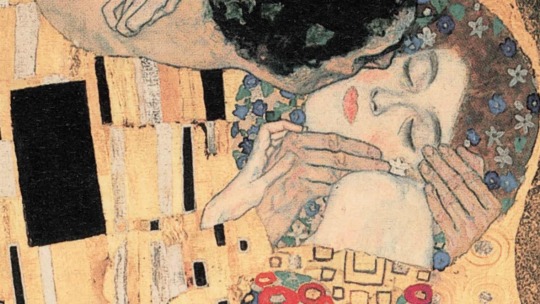
Gustav Klimt, un destacado miembro del movimiento Secesión de Viena, dejó una huella imborrable en el mundo del arte como pionero del arte moderno. Conocido por su estilo distintivo, que presentaba fondos planos, ornamentación repetitiva y patrones intrincados, Klimt abrió el camino para artistas más experimentales e innovadores. Sus obras representaron una transición desde las convenciones académicas seguidas durante siglos hacia un arte más abstracto y expresivo. Uno de los aspectos notables de las pinturas de Klimt fue su uso de pan de oro durante su “Fase Dorada”. Exploremos algunas de las obras más destacadas de Gustav Klimt y adentremosnos en su aplicación del pan de oro en sus pinturas.
Obras Notables de Gustav Klimt
Gustav Klimt creó un impresionante cuerpo de obras, caracterizado por su visión artística única. Entre las creaciones más destacadas de Mark Rothko se encuentran:
El Beso, 1908: Esta icónica pintura representa un abrazo íntimo y apasionado entre una pareja, mostrando la maestría de Klimt en los patrones y la ornamentación.
Pinturas para la Universidad de Viena, 1898–1900: Klimt contribuyó a la decoración de la Universidad de Viena con una serie de impresionantes pinturas, ejemplificando su excelencia artística y atención al detalle.
Judith y la Cabeza de Holofernes, 1901: Esta impactante pintura retrata la historia bíblica de Judith decapitando al general asirio Holofernes, combinando sensualidad con un aire de misterio.
Alegoría de la Escultura, 1889: Una obra temprana de Klimt, la Alegoría de la Escultura muestra su talento para capturar la forma humana y explorar temas alegóricos.
Friso de Beethoven, 1902: Una obra de arte monumental, el Friso de Beethoven celebra el poder de la música y rinde homenaje al renombrado compositor Ludwig van Beethoven.
Retrato de Adele Bloch-Bauer I, 1907: Este retrato, a menudo conocido como la “Mujer de Oro”, es un ejemplo exquisito de la habilidad de Klimt para capturar la esencia y personalidad de sus sujetos.
El Árbol de la Vida, Friso Stoclet, 1909: Creado para el Palacio Stoclet en Bruselas, este mural monumental presenta un majestuoso árbol con ramas entrelazadas, simbolizando la interconexión de la vida.
Danaë, 1907: Inspirada en la mitología griega, Danaë de Klimt retrata a la figura mitológica desnuda, envuelta en una cascada de lluvia dorada.
Muerte y Vida, 1915: Esta pintura reflexiva explora la yuxtaposición entre la vida y la muerte, con un simbolismo intrincado y una profunda exploración de la condición humana.
Serpientes de Agua II, 1907: En esta obra etérea y sensual, Klimt captura las formas entrelazadas de dos serpientes de agua, mostrando su habilidad para representar el movimiento y la sensualidad.
Otras obras destacadas de Gustav Klimt incluyen “Leda y el Cisne” (1917), “Jardín de la Granja con Crucifijo” (1911) y “El Girasol” (1907). A lo largo de su carrera, el tema principal de Klimt fue el cuerpo femenino, y sus obras se caracterizaban por un erotismo franco. A pesar de que los expresionistas y surrealistas de la época podrían no estar familiarizados con el arte de Klimt, sus pinturas comparten muchas características formales y temáticas con estos movimientos artísticos de entreguerras.
La Importancia del Pan de Oro en las Pinturas de Klimt
Uno de los elementos más impactantes de las pinturas de Gustav Klimt es su uso de pan de oro, que agregaba un sentido de lujo, opulencia y belleza a sus obras. La incorporación de pan de oro por parte de Klimt no fue simplemente un adorno superficial; fue parte integral de su enfoque artístico, donde la forma y el contenido se integraban de manera armoniosa. Su uso de pan de oro le permitía crear un impacto visual que elevaba sus pinturas a una grandeza acorde con su temática.
La inspiración de Klimt para incorporar pan de oro provino de su visita a Rávena, Italia, en 1903, donde tuvo la oportunidad de contemplar los mosaicos bizantinos de la Iglesia de San Vital. Presenciar el efecto luminoso del oro en estas antiguas obras de arte dejó una profunda impresión en la sensibilidad artística de Klimt. Así, se embarcó en lo que comúnmente se conoce como su “Fase Dorada”, que duró aproximadamente una década y definió su estilo artístico.
Para lograr el efecto cautivador del oro en sus pinturas, Klimt utilizaba pan de oro real: una fina lámina de oro genuino aplicada sobre la superficie de la obra de arte. Esta técnica creaba un efecto radiante y luminoso, haciendo que sus pinturas parecieran estar hechas de metales preciosos. El proceso implicaba aplicar una capa de adhesivo sobre la superficie de la pintura y colocar cuidadosamente el pan de oro sobre el adhesivo. Klimt luego utilizaba un pincel suave o un paño para presionar suavemente el pan de oro, asegurando su adherencia y eliminando cualquier exceso.
El uso de pan de oro por parte de Klimt no solo fue una elección estética, sino también un medio para crear una experiencia simbólica y transformadora para el espectador. Las superficies doradas y brillantes servían para intensificar el impacto emocional de sus pinturas, evocando un sentido de asombro, belleza y trascendencia.
En conclusión, las contribuciones de Gustav Klimt al mundo del arte como destacado miembro del movimiento Secesión de Viena y pionero del arte moderno son innegables. Su uso de fondos planos, ornamentación repetitiva y patrones intrincados sentó las bases para enfoques más experimentales en el arte. Además, su aplicación de pan de oro durante su “Fase Dorada” añadió una capa de opulencia y simbolismo a sus pinturas. A través de la magistral integración del pan de oro, Klimt logró un efecto luminoso que realzó la belleza y la resonancia emocional de sus obras de arte.
Originally published at https://artemartinprieto.com/on June 16, 2023.
4 notes
·
View notes
Text
Die Freien was a 19th-century circle of political philosophers in Germany, gathering for informal discussion over a period of a few years. From left: Arnold Ruge, Ludwig Bühl, Carl Nauwerck, Bruno Bauer, Otto Wigand, Edgar Bauer, Max Stirner, Eduard Meyen, three unknown persons, Karl Friedrich Köppen.

Bug feast by Okamoto Kiichi, c1922
5K notes
·
View notes